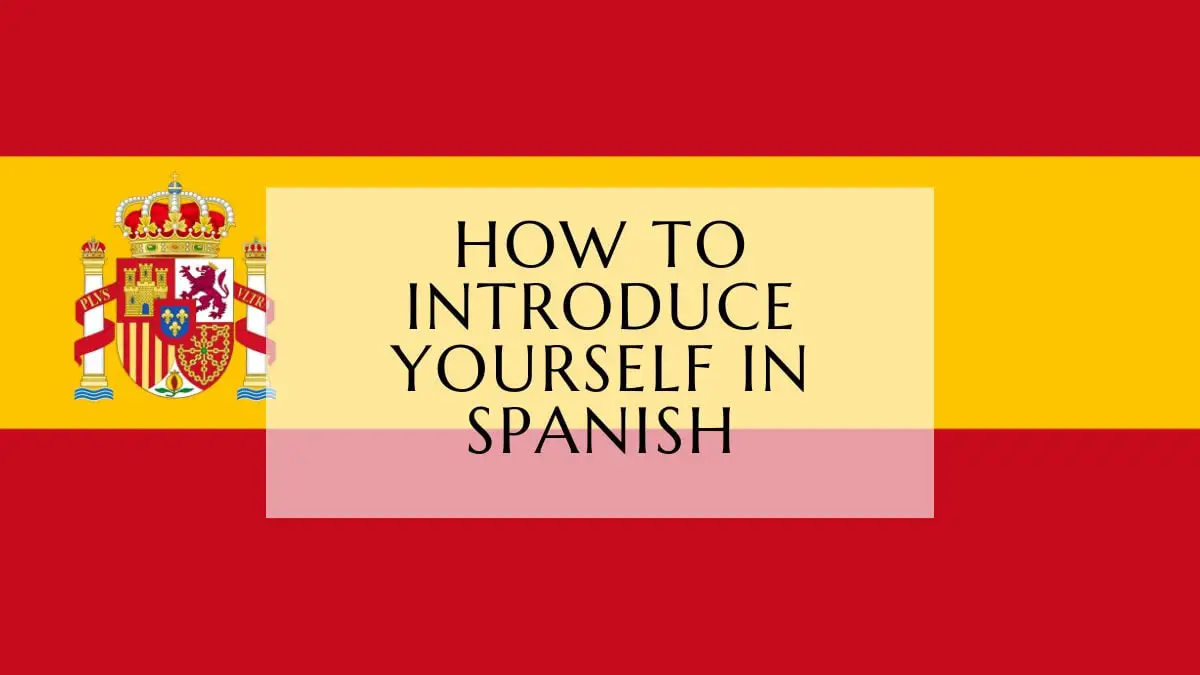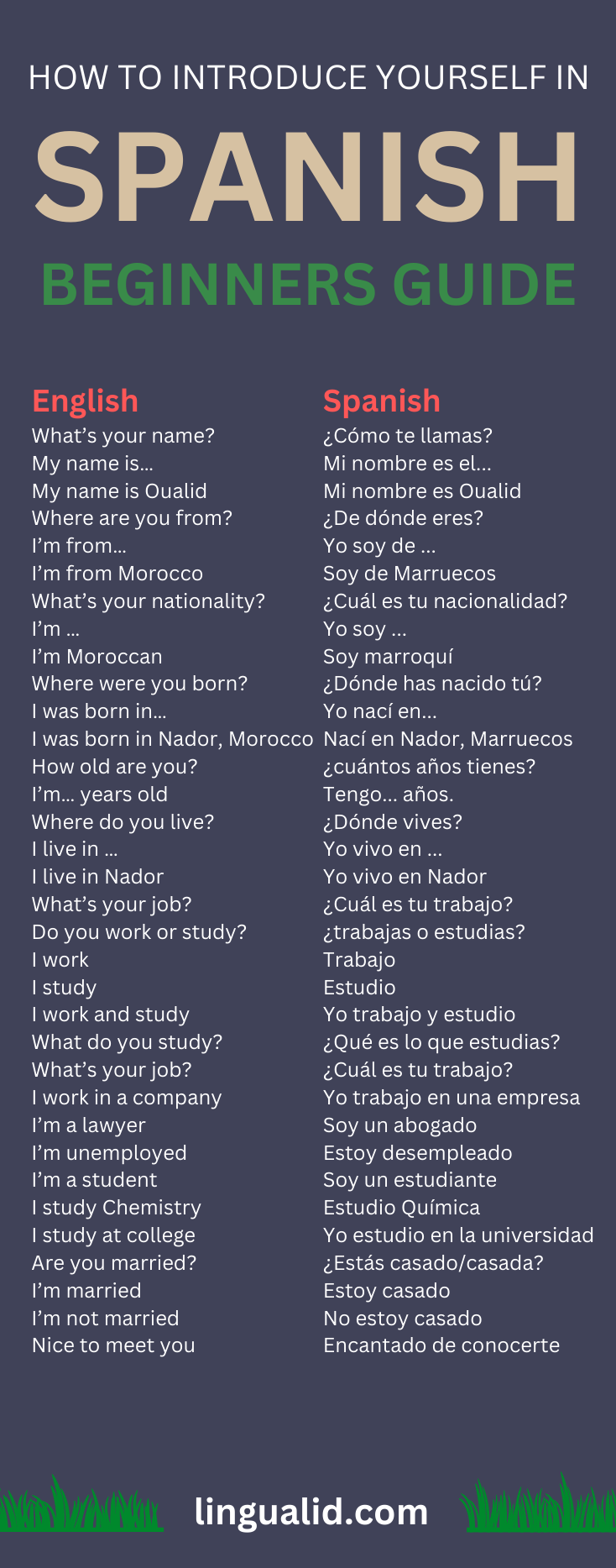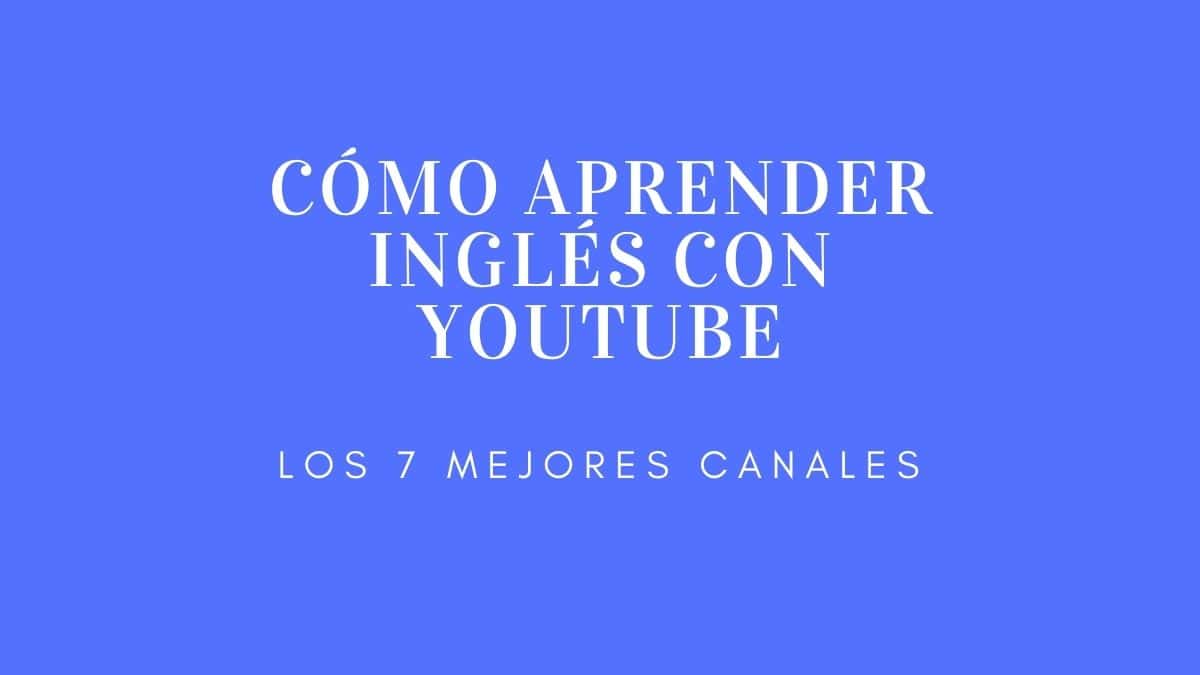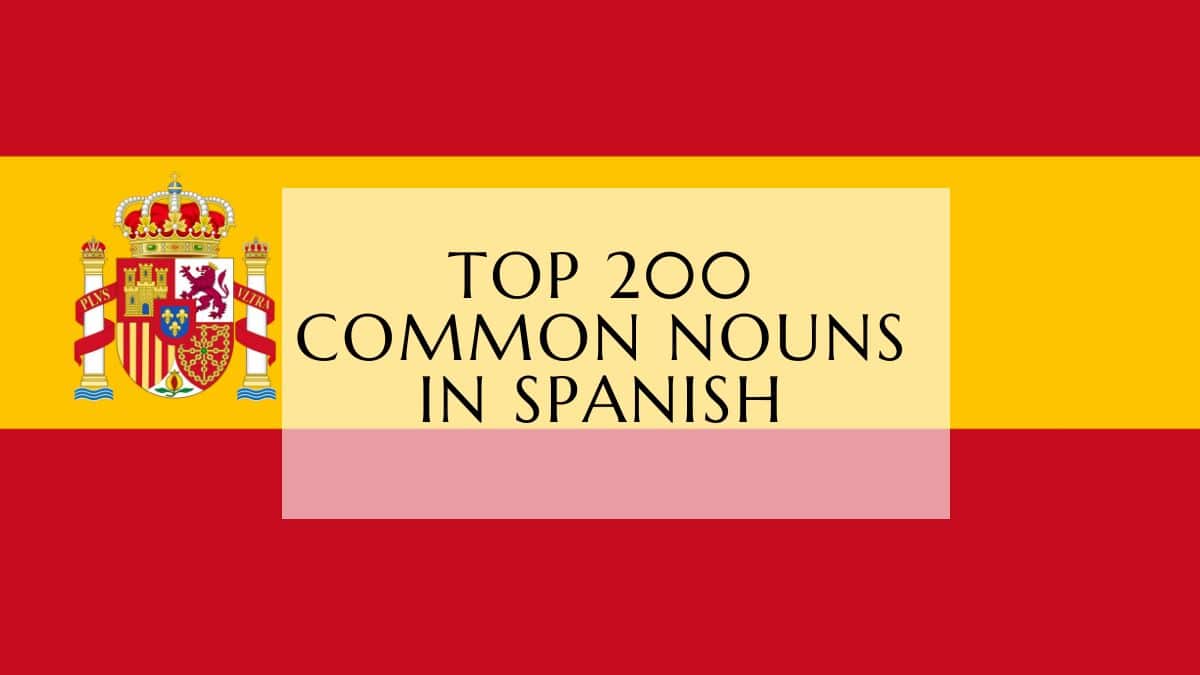In this lesson, we will talk about how to introduce yourself in Spanish (with audio) and have an icebreaker into your first-ever Spanish dialogue. You’ll learn how to ask someone about their name, age, nationality, and work, let’s get started!

Introduce Yourself In Spanish
| English | Spanish |
| What’s your name? | ¿Cómo te llamas? |
| My name is… | Mi nombre es el… |
| My name is Oualid | Mi nombre es Oualid |
| Where are you from? | ¿De dónde eres? |
| I’m from… | Yo soy de … |
| I’m from Morocco | Soy de Marruecos |
| What’s your nationality? | ¿Cuál es tu nacionalidad? |
| I’m … | Yo soy … |
| I’m Moroccan | Soy marroquí |
| Where were you born? | ¿Dónde has nacido tú? |
| I was born in… | Yo nací en… |
| I was born in Nador, Morocco | Nací en Nador, Marruecos |
| How old are you? | ¿cuántos años tienes? |
| I’m… years old | Tengo… años. |
| Where do you live? | ¿Dónde vives? |
| I live in … | Yo vivo en … |
| I live in Nador | Yo vivo en Nador |
| What’s your job? | ¿Cuál es tu trabajo? |
| Do you work or study? | ¿trabajas o estudias? |
| I work | Trabajo |
| I study | Estudio |
| I work and study | Yo trabajo y estudio |
| What do you study? | ¿Qué es lo que estudias? |
| What’s your job? | ¿Cuál es tu trabajo? |
| I work in a company | Yo trabajo en una empresa |
| I’m a lawyer | Soy un abogado |
| I’m unemployed | Estoy desempleado |
| I’m a student | Soy un estudiante |
| I study Chemistry | Estudio Química |
| I study at college | Yo estudio en la universidad |
| Are you married? | ¿Estás casado/casada? |
| I’m married | Estoy casado |
| I’m not married | No estoy casado |
| Nice to meet you | Encantado de conocerte |
Note: you can practice what you’ve learned here, and learn how to pronounce each of the words in our Memrise course here, don’t know how to use the platform or sign up? we’ve got you covered in this easy-to-follow tutorial here.
Related posts:

Spanish Introduction Study Guide
Quiz
Instructions: Answer the following questions in 2-3 sentences based on the provided source material.
- How would you ask someone their name in Spanish?
- What are two ways to say “I’m from…” in Spanish?
- How do you ask someone’s age in Spanish? How would you respond with your own age?
- What is the difference between “¿trabajas o estudias?” and “¿Cuál es tu trabajo?”
- Translate the following phrases: I study Chemistry, I work in a company, I’m unemployed.
- How do you ask someone if they are married in Spanish?
- What is the appropriate response to “Encantado de conocerte”?
- Besides the provided phrases, what other vocabulary topics does Lingualid suggest for further learning?
Answer Key
- You ask someone their name in Spanish by saying “¿Cómo te llamas?”.
- You can say “I’m from…” in Spanish by using either “Yo soy de…” or “Soy de…”.
- You ask someone’s age by saying “¿Cuántos años tienes?”. To respond with your own age, you would say “Tengo… años,” filling in the blank with your age.
- “¿Trabajas o estudias?” translates to “Do you work or study?”, while “¿Cuál es tu trabajo?” means “What is your job?”. The first asks about your occupation status, while the second directly inquires about your specific job.
- I study Chemistry: “Estudio Química”
- I work in a company: “Yo trabajo en una empresa”
- I’m unemployed: “Estoy desempleado”
- You ask someone if they are married in Spanish by saying “¿Estás casado/casada?”.
- An appropriate response to “Encantado de conocerte” is “Igualmente” which means “Likewise”.
- Lingualid suggests exploring vocabulary related to countries and nationalities, jobs, and numbers.
Essay Questions
- Discuss the importance of learning basic introductory phrases like the ones presented in the source material. How can these phrases benefit someone who is just beginning to learn Spanish?
- The blog post highlights phrases related to work and studies. How do these topics reflect the practical applications of learning a new language?
- Analyze the structure of the phrases provided in the source material. What patterns do you notice in the word order or grammar?
- The author emphasizes the use of a Memrise course for pronunciation practice. How does technology play a role in modern language learning, and what are its advantages and disadvantages?
- Imagine you are creating a follow-up lesson to this blog post. What additional phrases or vocabulary would you include to help learners expand their conversational skills in Spanish?
Glossary of Key Terms
- ¿Cómo te llamas?: What’s your name?
- Mi nombre es…: My name is…
- ¿De dónde eres?: Where are you from?
- Yo soy de…/Soy de…: I’m from…
- ¿Cuál es tu nacionalidad?: What’s your nationality?
- Yo soy…: I am…
- ¿Dónde has nacido tú?: Where were you born?
- Yo nací en…: I was born in…
- ¿Cuántos años tienes?: How old are you?
- Tengo… años: I’m… years old
- ¿Dónde vives?: Where do you live?
- Yo vivo en…: I live in…
- ¿Cuál es tu trabajo?: What’s your job?
- ¿Trabajas o estudias?: Do you work or study?
- Trabajo: I work
- Estudio: I study
- Yo trabajo y estudio: I work and study
- ¿Qué es lo que estudias?: What do you study?
- Yo trabajo en una empresa: I work in a company
- Soy un abogado: I’m a lawyer
- Estoy desempleado: I’m unemployed
- Soy un estudiante: I’m a student
- Estudio Química: I study Chemistry
- Yo estudio en la universidad: I study at college
- ¿Estás casado/casada?: Are you married?
- Estoy casado: I’m married
- No estoy casado: I’m not married
- Encantado de conocerte: Nice to meet you
Happy learning!
Oualid Cheddadi is the founder of Lingualid, a platform that inspires independent language learners worldwide, regardless of the language they are learning. The name “Lingualid” is derived from the Portuguese word for “language,” “língua,” and the last three letters of Oualid’s name, “Lid.”



